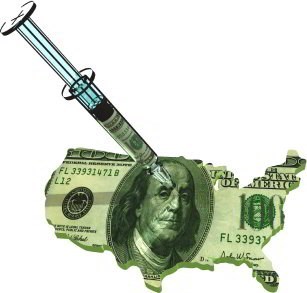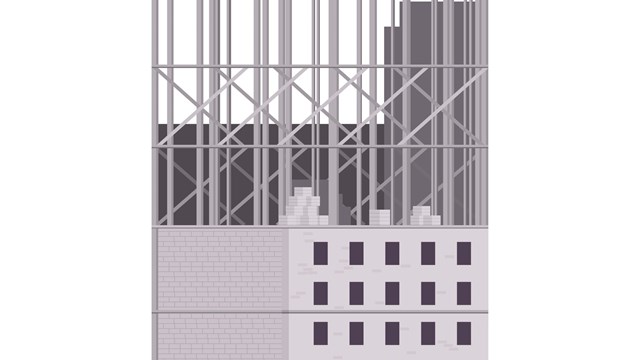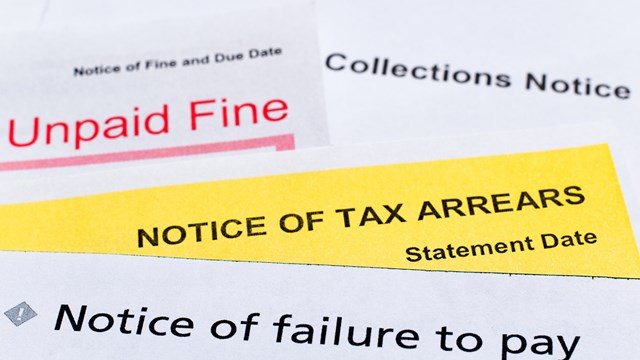
Fresh from hoisting up the banking and automobile sectors, a newly muscular Uncle Sam is now turning his attention to putting the skids on the real estate meltdown.
Earlier this year, the Obama Administration rolled out two major housing initiatives that combine one-part stimulation with one-part bailout.
The stimulus portion awards an $8,000 tax credit to first-time homebuyers, aimed at creating demand that will help stabilize the housing market. The bailout portion allows some homeowners with mortgages the option of either refinancing at a much better interest rate, or having their mortgage payment modified down to 31 percent of their gross income.
While the housing initiatives are helping to thaw the chilly real estate market nationwide, the effect on properties in the Garden State may not be so clear. As with many government programs, these rolled out of Washington in a one-size-fits-all mode. Unfortunately, their limited eligibility requirements make them a tight fit—or no fit for at all—depending on how your household income, or where you live in New Jersey.
$8,000 in Real Money
The $8,000 tax credit is available to U.S. residents making less than $75,000 a year ($150,000 for couples) who purchase a house, condominium or co-op between January 1 and December 1, 2009.
The home must be a primary residence, be located in the U.S and can’t be an inheritance, gift or sale from a “related person.” The credit also limited to $8,000 or 10 percent of the home’s purchase price, whichever is less. For example, a house purchased for $65,000 would only generate a $6,500 credit.
For 2009 homebuyers, the credit is much more valuable than a mere tax deduction. Unlike a deduction, a credit reduces federal tax liability at a 100 percent rate and will return cold, hard cash to anyone owing less than $8,000.
For example, a taxpayer who owed $4,000 in federal taxes and qualified for the credit would get a check from Uncle Sam for $4,000; a taxpayer who owed nothing and qualified would get a check for $8,000.
Additionally for those purchasing in 2009, the credit can be claimed on either their 2008 or 2009 tax return, depending on which is more advantages to the filer. Those who bought a house in 2009 but filed their 2008 return without the credit, can file an amended 2008 return (Form 1040X), using form 5405 and get a refund check within a matter of weeks or months, says IRS spokesperson Kevin McKeon. “You get the money right now instead of waiting until next January.”
McKeon foresees new buyers using cash from the credit to either furnish their new home or replenish bank accounts depleted from the down payment.
There is also a tax credit for those who bought from January 1, 2008 until December 31, 2008. But it generally drops to $7,500 and takes the form of an interest-free loan that is repaid in 15 years in 15 equal payments.
Good Results
While in New York City’s boroughs, especially in Manhattan, it is more difficult for first time homebuyers to qualify, across the Hudson, there are no such constraints. “I will tell you that the majority of our buyers in our area,” says Terri DeLorenzo, a broker/manager of the Weichert, Realtors office in Clifton, New Jersey, “my area is Bergen, Passaic, Essex and Hudson counties, we’re trying to get the 4 corners of those 4 counties. The majority of our buyers are using, utilizing or plan to utilize the tax credit,” she says.
And according to DeLorenzo, sales are significantly up because of it. “Our first-time homebuyer market, if the house is priced right and it’s under $300,000, it is almost a seller’s market, there’s multiple offers, they’re very, very busy. We have a lot of sales. We’re way over our objective sales.”
The tax credit is very attractive to working professionals and young couples with families, says DeLorenzo. “I think that as far as the most ideal type of candidate is probably anybody who is a first-time homebuyer but what we’re seeing mostly are couples, young couples, newly married, or not yet married—young, both parties are working and that’s what we’re seeing the most of,” DeLorenzo says, adding that some of the new homeowners even have children on the way.
The demographic of the first time homebuyer is not limited to one specific area of the Garden State, she believes, it’s almost neighborhood to neighborhood. “It’s the towns that have decent housing, a suburban feel, single family homes, more so than the condos,” says DeLorenzo. “It’s the whole picture. It’s a suburban, single-family home in a town that’s decent, it’s not upper, it’s middle class, working-class towns and the price of the house is usually under $300,000 – now like under $350,000, and that’s kind of telling…. Now I’m seeing houses under $350,000, which is a rise, and I’m not saying that house prices are going up, I’m saying that the demand is reaching into a higher price.”
Now is an especially good time for first timers to enter the homebuying market, DeLorenzo says. “I believe it’s a whole ‘perfect storm:’ you have low interest rates, you have good pricing, the house prices are now affordable – the median income can now afford the median sales price of a home, so you have kind of this perfect storm and the tax credit on top of that. I think it’s all of these factors that are driving the market right now. I am seeing an increase in that first-time homebuyer market, even now, and that is now spurring an increase in that second-home market. Not a vacation home — I mean, a move-up home, because those people who have the first-time homebuyer homes for sale are selling now, so they can now buy that second level house.”
Millions to Be Helped
The second major initiative of the Obama Administration is the Making Home Affordable Program. A joint effort between the U.S. Department of the Treasury and Department of Housing and Urban Development (HUD), the program will offer help to homeowners struggling to meet their mortgage payments or in danger of default. The seven to nine million homeowners who are expected to qualify nationwide will be offered help refinancing or modifying their first mortgages.
The refinance option is aimed at homeowners who are current on their mortgage but can’t take advantage of recent lower mortgage rates because of tightening lending standards or because their homes have decreased in value.
For homeowners to be eligible, the mortgage must be owned or guaranteed by Fannie Mae or Freddie Mac and it must not exceed 105 percent of the property’s current value. Those who will benefit from the program include many who were able to obtain loans under the sub-prime “almost anything goes” rules, but who are now shut out because of tightened loan requirements.
“Generally, they [the banks] are going back to the strict standards of more than 10 years ago,” says Sharon Price, director of policy at the National Housing Conference, a non-profit that promotes affordable housing policies. Among those who bought homes recently but now can’t get refinancing, says Price, are the self-employed, anyone with a credit score below 700 or homeowners who have adjustable rate mortgages (ARMs) that are resetting to much higher rates.
Many others, Price says, are shut out of refinancing because they’re “under water” with their mortgage—meaning that they owe more than their co-op or condo is worth due to decreasing property values.
The program will be able to help those under water, but only to a certain degree, as eligibility requirements call for the condo to be assessed at a loan-to-value ratio of between 80 and 105 percent of what they owe, says Price. “If somebody’s really under water, they’re not going to be able to be helped by the program. I think they (HUD) needed to make the parameters narrow enough that they felt like they weren’t helping anyone who may have taken out more home than they could truly afford. So it seems like they picked a rather narrow window.”
Those looking to find out if they’re eligible for refinancing though the program can contact Fannie Mae or Freddie Mac directly, or go to the MakingHomeAffordable.gov website and use its “Loan Lookup Tool,” in the section of the same name.
31 Percent of Income
The loan modification option of the Making Home Affordable program is the most aggressive of the new initiatives and it’s aimed at homeowners who have missed mortgage payments and are in danger of foreclosure on their first mortgage.
If they qualify for the initiative, homeowners can have their mortgage monthly payments reduced to 31 percent of their gross monthly income. (To accomplish the reduction, the loan can be extended to 40 years, the percentage rate reduced to as low as two percent for five years, or a portion of the loan may be deferred, or even forgiven.)
Those who qualify for the loan modification must be the owner/occupant of their condo or co-cop, have an unpaid balance of less than $729,750, have the loan originating before January 1, 2009 and must be at risks of imminent default because of significant changes in their income or expenses.
The modification program may be of limited value to co-op or condo owners in certain parts of the state because of the $729,750 ceiling on mortgages. In more expensive New Jersey markets, the high prices of most condos or co-ops means that many owners will fall well outside the criteria for participation. In more modest markets, it’s expected that many more will qualify, depending on their remaining mortgage balance.
Despite the limitations of the loan modification, a fair number of New Jersey homeowners will still be able to take advantage of the program, especially those struggling with their mortgages due to changes endemic to today’s economy.
“Sometimes people are losing second jobs, or they’ve been cut back on their overtime. A source of income that they’re depending on to pay their monthly mortgage payment has been reduced,” says HUD spokesperson Brian Sullivan.
Another limitation of the program is that it’s voluntary on the part of loan providers, and not all loan providers have signed on yet. A partial list of loan providers participating as of mid-April included GMAC Mortgage, Chase Financial, CitiMortgage and Wells Fargo Bank. Homeowners who want to find out if their loan provider is participating can log unto www.MakingHomeAffordable.govand check the list there (which may not be complete), or calling the number listed on their mortgage payment.
The State’s Role
As far as letting the public know what’s available, DeLorenzo says that realtors are more than doing their part. “I don’t know about any public agencies that are instructing them, I know that realtors…. I believe that it’s the realtors and the mortgage professionals that are getting the information out there the most. And I will tell you that my agents, I educate them on this,” she says, acknowledging that the tax credit program will end in some 150 days, (the deadline is December 1st) so homebuyers should be encouraged to take advantage of it.
In addition to the efforts of the federal government, the New Jersey Housing and Mortgage Finance Agency (HMFA) also provides a variety of programs to help prospective buyers purchase a home. Some coincide with federal programs while others are stand-alone initiatives.
According to the HMFA, “The First-Time Home Buyers Tax Credit Loan (TCLP) program provides a loan to pay downpayment and/or closing costs to first-time home buyers meeting all of the program requirements” and who are eligible under the federal law established by the IRS in Form 5405. HMFA requirements go on to state that “[Candidates] must apply for a TCLP loan on or after April 8, 2009 and close on the home purchase between April 8, 2009 and December 1, 2009. The TCLP loan will not exceed $5,000 ($4,000 in the case of married filing separately) and will be secured by a second mortgage. The borrower will pledge to apply the refunds received from the first-time home buyer tax credit toward the repayment of the TCLP loan.”
HMFA also offers “a below-market, fixed interest rate to first-time and urban area homebuyers. Down payments of as little as three percent are required and must come from the borrower’s own assets. Loans are 30-year fixed rate. Certain closing costs can be gifted by family members, non-profit organizations or government agencies. Debt to income ratios are as high as 33 percent (housing debt, i.e., mortgage, taxes, insurance) and up to 38 percent of total monthly debt load.”
The HMFA is also working to wed home buying incentives with the movement toward more energy-efficient housing by offering grants to multifamily communities that implement solar energy projects. In addition, the agency is also offering low-interest loans to qualifying households and multifamily buildings for the development and integration of energy efficiency upgrades.
400,000 Seek Loan Modification
Earlier this year, homeowners seeking modifications to their mortgages swamped a Chase Financial website this spring, downloading 400,000 applications for mortgage relief, according to company spokesman Michael Fusco. “We encourage our customers, at the first sign they’re having any trouble paying their mortgage, they should contact their lender immediately,” says Fusco, who notes loan modification applications to his business are reviewed and approved within seven to 60 days.
HUD’s Brian Sullivan says that homeowners struggling with mortgage payments need to go against their tendency to isolate themselves. “You can’t imagine the people who feel a tremendous shame with the prospect of losing their home, so they don’t open their mail, they don’t make the phone call and things go from bad to worse, so there’s no avoiding the inevitable. So the best thing to do is confront this head on and speak to your loan service, your loan lender, and ask for the loss mitigation department,” he says.
Sullivan says that homeowners in trouble also need to be aware of various scam artists promising to save their homes, for a fee. “There’s an explosion of these pay-to-play operations—some of them are legitimate, some of them are going so far as to misrepresent themselves as government agencies, some of them are guaranteeing to modify the homeowner’s mortgage. Nobody can guarantee that except for your own lender.”
Sullivan says a distressed homeowner’s best counseling is a HUD-approved agency, available at no cost and listed by state and city on the MakingHomeAffordale.gov website. “The HUD-approved housing community, supported by HUD, will not charge anybody.”
And in today’s tough environment, homeowners and the housing sector can use all the help they can get.
For more information and details on how to apply, eligibility requirements, and other New Jersey-specific programs, board members, managers and residents can log onto the state’s recovery website at www.nj.gov/recovery/. For additional information on the American Recovery and Reinvestment Act, visit www.recovery.gov.
Jim Douglass is the managing editor of New England Condominium magazine, a Yale Robbins’ publication. The New Jersey Cooperator’s Managing Editor Debra A. Estock and Associate Editor Hannah Fons contributed to this article.






Leave a Comment